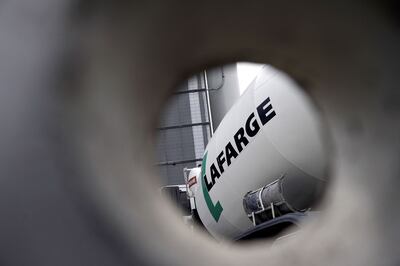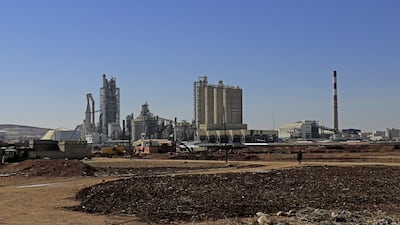Judges at France’s top court ruled against cement manufacturer Lafarge on Tuesday, opening the door to reinstating charges of complicity in crimes against humanity in Syria.
It is a major setback for Lafarge, which is accused of paying nearly 13 million euros ($15.3 million) to groups including ISIS to keep its cement plant in northern Syria operating.
The company has previously admitted following its own internal investigation that its Syrian subsidiary paid armed groups to help protect staff at the plant.
But it has rejected several charges against it as part of the French legal probe, including that it was complicit in crimes against humanity because of its dealings with militant groups in the area, which included ISIS.
Lafarge denies any responsibility for the money winding up in the hands of violent groups and has fought to have the case dropped.
The Paris Court of Appeal had in 2019 dismissed the crimes against humanity charge, saying it accepted the payments were not aimed at abetting ISIS and its agenda.

Quashing that decision, the Court of Cassation ruled that “one can be complicit in crimes against humanity even if one doesn't have the intention of being associated with the crimes committed".
“Knowingly paying several million dollars to an organisation whose sole purpose was exclusively criminal suffices to constitute complicity, regardless of whether the party concerned was acting to pursue a commercial activity,” it said.
The judges added that “numerous acts of complicity” would go unpunished if courts adopted a more lenient interpretation.
The ruling does not mean that Lafarge will automatically face a trial. The court, instead, referred the case back to investigating magistrates to reconsider the complicity charge.
The Paris-based International Federation for Human Rights called the decision “a great win in the fight for corporate accountability for international crimes.”
Lafarge, now part of Swiss-listed Holcim, is under formal investigation in France over efforts to keep operations going at a factory in Syria after conflict erupted in 2011.
Several former executives of the company are also under formal investigation.
Lafarge left Syria in September 2014 after ISIS seized its plant in Jalabiya, around 150 kilometres north-east of Aleppo.
Lafarge's lawyer has not commented on the latest ruling.


